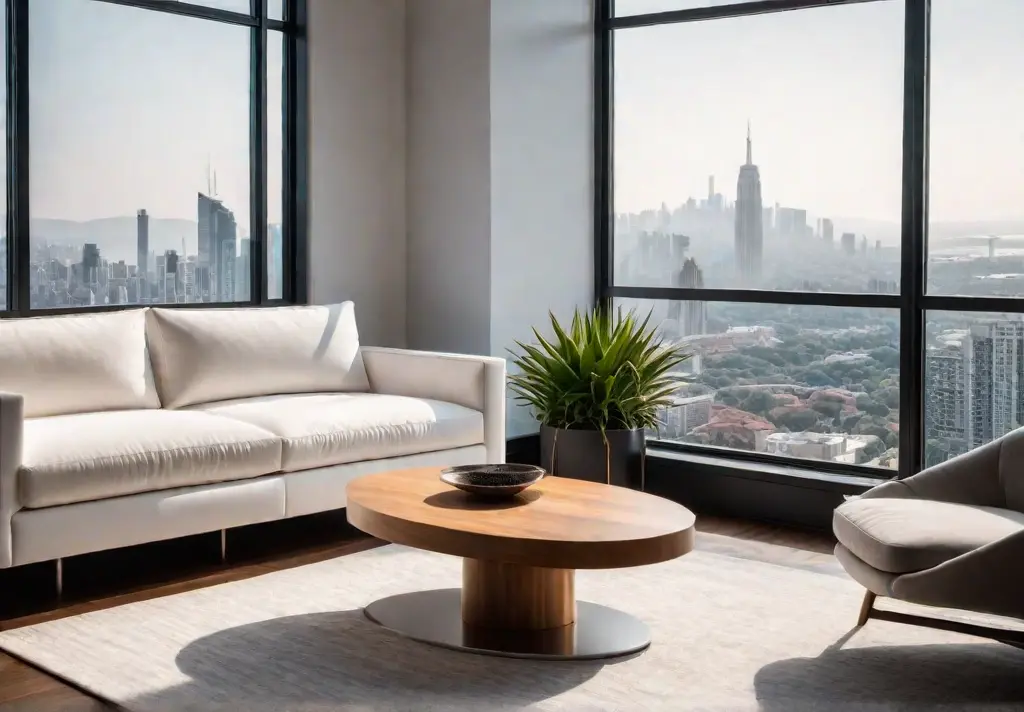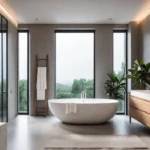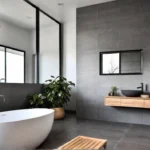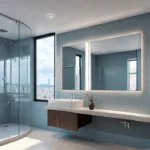As a young marketing manager living in the heart of Chicago’s Lincoln Park, I know firsthand the challenges of decorating a small city apartment on a budget. But let me let you in on a little secret – going minimalist is the key to creating a stylish, functional living space, no matter the square footage.
The minimalist living room is all about simplicity, serenity, and letting the essentials shine. No cluttered surfaces, no overstuffed furniture – just clean lines, natural materials, and a calming color palette that allows you to unwind truly. And the best part? With the right minimalist furniture choices, you can maximize your space and make even the tiniest living room feel open and airy.
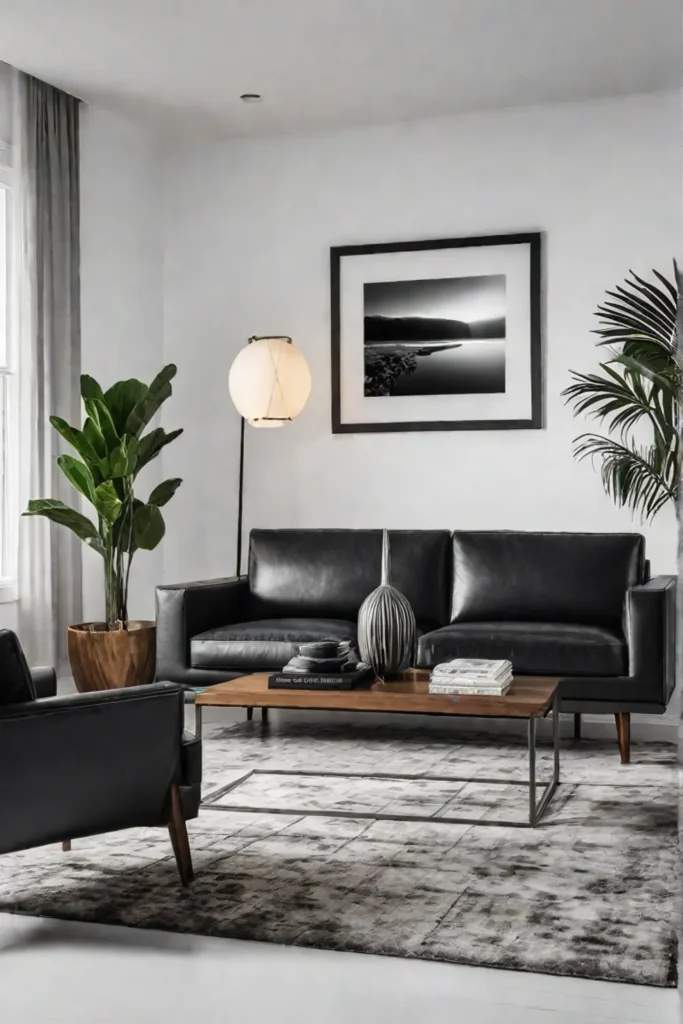
In this article, we’ll explore the key principles of minimalist design and share practical tips for selecting the perfect furniture to achieve that serene, Instagram-worthy look in your home. Whether you’re a first-time homeowner or a seasoned renovator, embrace the beauty of “less is more” and transform your living room into an oasis of calm.
Multifunctional Furniture
One of the cornerstones of minimalist design is multifunctional furniture – pieces that serve multiple purposes and help you streamline your space. After all, who needs a bulky entertainment unit, a separate coffee table, and individual recliners when you can find a console that doubles as a media unit, a coffee table with hidden storage, or a sofa with built-in recliners?
Multifunctional furniture is a game-changer, especially for small-space living. Studies show that these versatile pieces can increase a room’s perceived size by up to 20%! Just imagine how much more open and airy your living room will feel with a few strategic, dual-purpose finds.
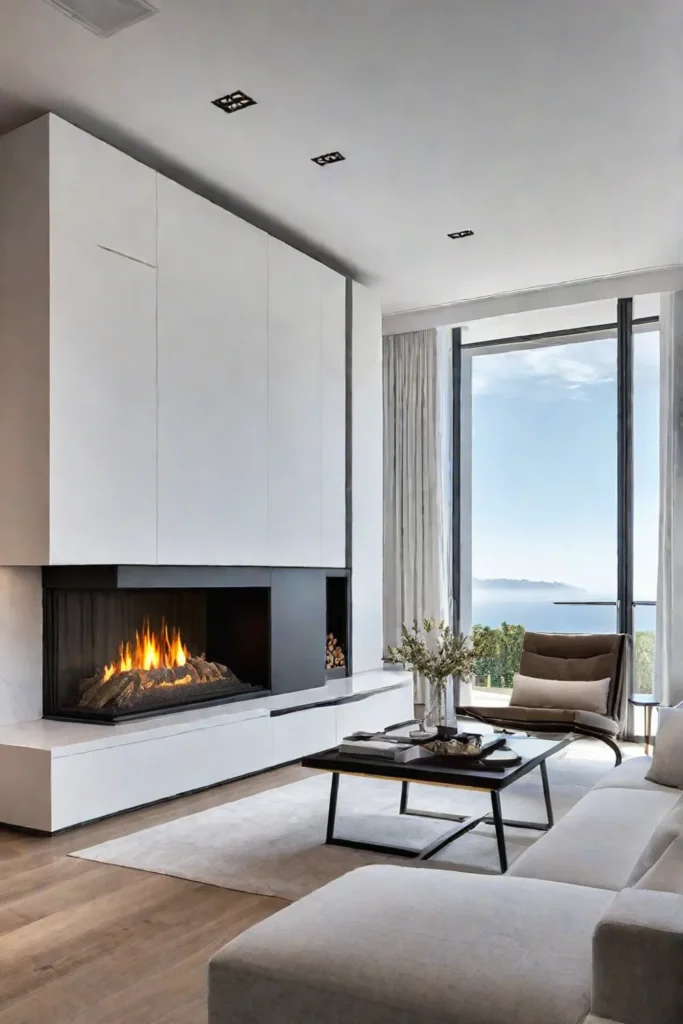
When shopping for minimalist furniture, look for pieces that offer hidden storage, fold-out features, or combined functionalities. A coffee table with compartments for stashing magazines and remotes, a sofa with a built-in chaise lounge, or a console that holds your TV and media components – these kinds of multitasking heroes will help you maximize every square inch.
Clean Lines
Another hallmark of minimalist furniture is its clean, simple lines. Gone are the days of ornate, overstuffed sofas and chairs – in the world of minimalism, it’s all about straight edges, geometric shapes, and uncluttered silhouettes.
Studies show that people perceive clean-lined rooms as more spacious and calming. There’s just something about the visual harmony of those crisp, unadorned lines that instantly soothe the senses.
When selecting minimalist living room pieces, opt for sofas, chairs, and tables with a streamlined, modern aesthetic. Steer clear of anything too curvy or embellished, and instead, focus on pieces that let the quality of the materials and craftsmanship shine. A mid-century-inspired armchair with gentle curves or a sleek, rectangular coffee table – these kinds of clean-lined stunners will elevate your space.
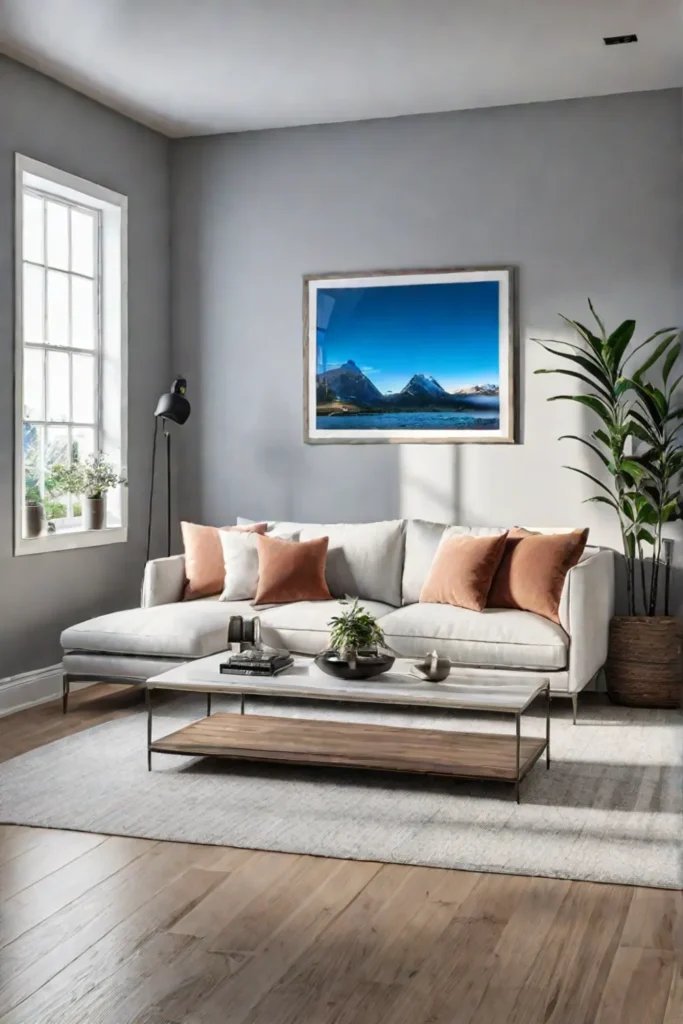
Don’t be afraid to mix and match clean-lined furniture pieces. The key is to stick to a cohesive color or material palette to create a sense of visual unity. For example, pair a white, low-profile sofa with a natural wood media console and a glass-topped coffee table for a minimalist living room that’s both stylish and serene.
Neutral Colors
When it comes to minimalist design, neutral colors reign supreme. Think soothing shades of white, gray, beige, and black – the muted, earthy hues that provide a calming backdrop for your living room.
Studies have shown that neutral color schemes can positively impact our mental well-being, reducing stress and promoting relaxation. In a minimalist space, those quiet, understated tones allow your furniture’s clean lines and natural materials to shine truly.
So, when shopping for minimalist living room pieces, look for sofas, chairs, and tables in neutral palettes. Pair them with complementary textiles, like linen throw pillows or a wool area rug, to create a cohesive, calming aesthetic. And don’t be afraid to introduce pops of color through artwork, plants, or accent pieces – just be sure to keep those hues subtle and harmonious with your neutral foundation.
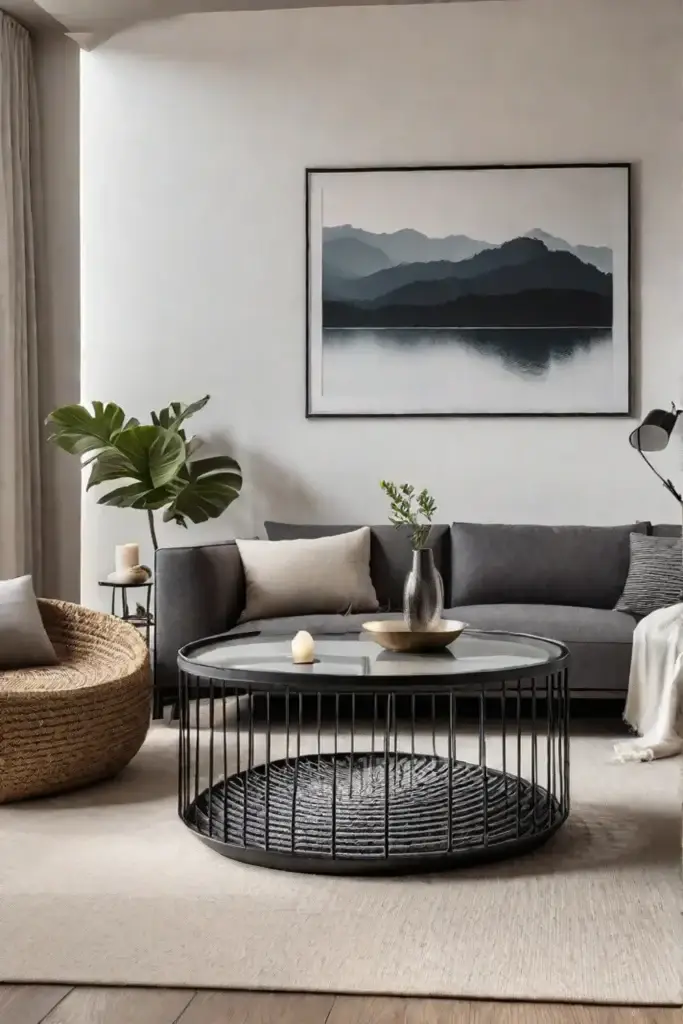
The beauty of a minimalist neutral palette is its versatility. Whether you’re drawn to the cool, serene vibes of a gray-and-white scheme or the warm, earthy tones of beige and tan, these muted colors provide the perfect blank canvas to layer in your style.
Natural Materials
Finally, no minimalist living room is complete without natural materials’ warm, tactile presence. Think solid wood, smooth stone, supple leather, and soft linen – organic elements that add depth, texture, and a sense of connection to the great outdoors.
Studies have shown that incorporating natural materials into our living spaces can profoundly be calming, reducing stress and promoting a sense of well-being. In the context of minimalist design, these raw, elemental textures perfectly complement the clean lines and neutral color palette.

When furnishing your minimalist living room, seek out pieces made from high-quality natural materials. A solid wood coffee table, a leather armchair, or linen curtains are timeless, investment-worthy finds that will elevate your space and stand the test of time.
Be mindful not to let your natural materials veer too rustic or earthy. Pair them with sleek, modern silhouettes and a neutral color scheme to maintain that refined, minimalist aesthetic. The goal is to create a harmonious blend of organic warmth and contemporary cool.
Conclusion
There you have it – the key principles of minimalist design and the essential furniture elements to achieve that serene, uncluttered look in your living room. From multifunctional pieces that maximize your space to clean-lined stunners that soothe the senses, neutral palettes that provide a calming backdrop, and natural materials that add warmth and texture – these are the building blocks of a minimalist oasis you’ll love coming home to.

So, what are you waiting for? Start curating your minimalist living room and embrace the beauty of “less is more.” With the right furniture choices, you can craft a stylish and functional space that allows you to relax, recharge, and truly live large—even in a small city apartment.
